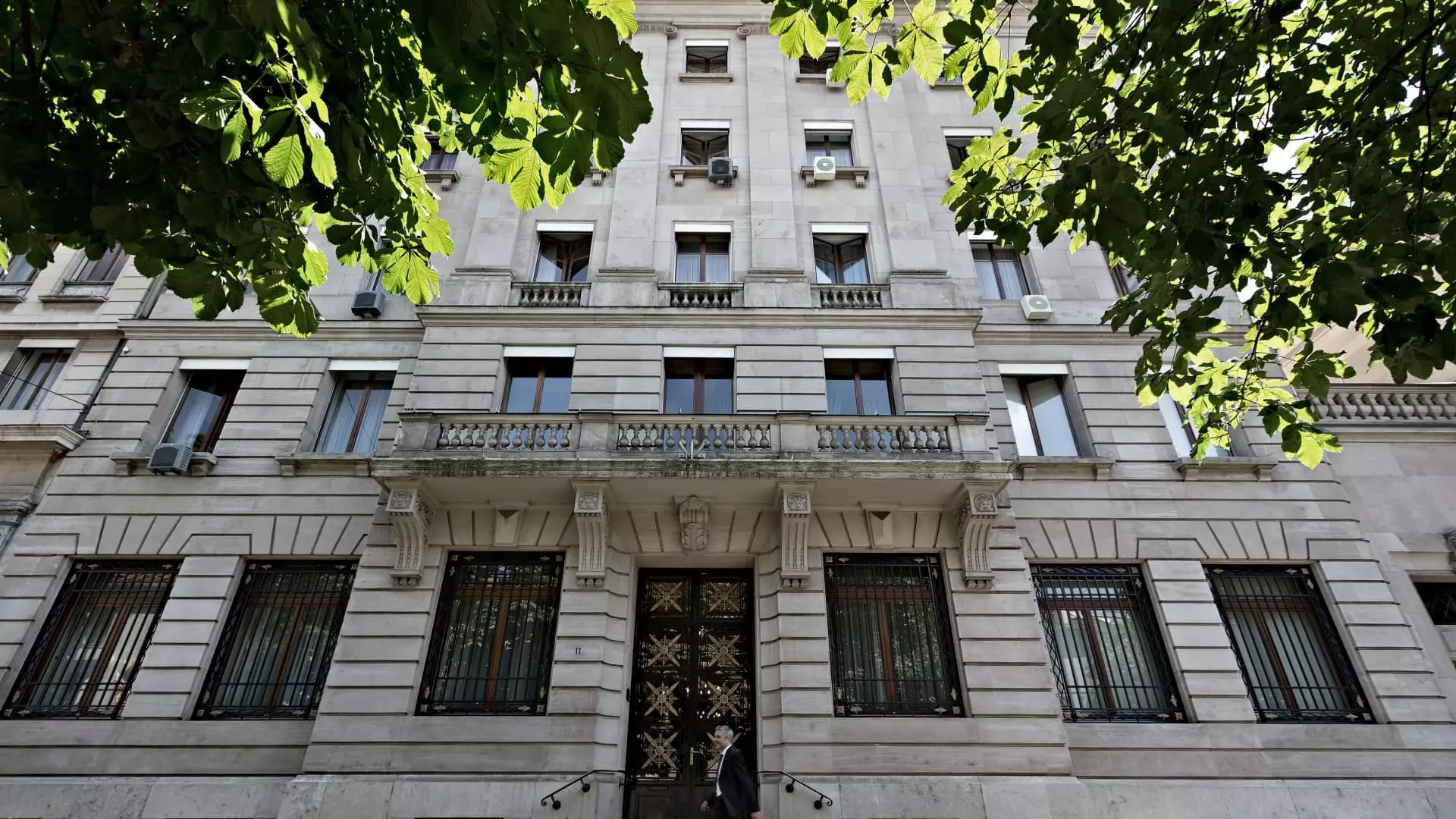Lombard Odier, one of Switzerland’s most venerable banking institutions, has found itself embroiled in a significant legal controversy as Swiss prosecutors have formally indicted the bank for “aggravated money laundering.” This indictment is not merely a backdrop for the bank’s storied history, which dates back to 1796; it thrusts Lombard Odier into a complex narrative intertwined with allegations of high-level criminal activities tied to prominent figures, including Gulnara Karimova, the daughter of Uzbekistan’s late authoritarian leader, Islam Karimov.
The Allegations Unfold
According to a statement released by the Office of the Attorney General of Switzerland (OAG), the indictment against Lombard Odier includes accusations that the bank and a former employee assisted in obscuring the proceeds obtained from a criminal organization led by Karimova. The OAG’s investigation suggests that a substantial amount of laundered money flowed through Lombard Odier’s accounts between 2005 and 2012. The indictment highlights a troubling narrative where a prestigious financial institution may have inadvertently or deliberately facilitated the financial machinations of a notorious criminal organization known colloquially as “The Office.” This significant legal move raises questions about the bank’s internal controls and the oversight measures employed over the last several years.
The ongoing investigation into Lombard Odier, which began in 2016, suggests deeper systemic issues within the bank regarding risk management and compliance protocols. Despite Lombard Odier’s assertion of innocence and their commitment to a vigorous defense, the gravity of the situation may result in long-term ramifications not just for the institution’s reputation, but also for its operational framework. Legal experts speculate that, regardless of the outcome, the scrutiny from this indictment could spark reviews and potentially overhaul procedures for compliance and transparency across the banking sector in Switzerland.
In response to the indictment, Lombard Odier has stood firm, labeling the allegations as “unfounded and without merit.” The bank contends that they had previously engaged with Swiss authorities proactively, reporting suspicions linked to transactions that have now led to these grave accusations. This defensive stance raises an intriguing point regarding accountability in the banking sector: to what extent should institutions be held liable for the actions of individual employees, particularly when they engage in fraudulent or illegal activities independent of the bank’s broader operational mandates?
As the relationship between banking institutions and criminal activity continues to unfold in both judicial and public spheres, the implications for financial accountability and regulation become increasingly pronounced. With Karimova currently serving time in Uzbekistan and facing her own legal challenges, the implications of this case may extend beyond individual accountability to address systemic issues within international banking that can enable money laundering. In an era where ethical banking practices are under constant scrutiny, Lombard Odier’s predicament serves as a reminder of the need for robust compliance measures and the significance of ethical governance in maintaining public trust in financial institutions.
The unfolding situation surrounding Lombard Odier presents a complex interplay between reputation, legal consequence, and financial ethics, spotlighting the vital need for banks to not only uphold their historical legacy but also to navigate the intricate web of modern finance with integrity and vigilance.

Leave a Reply